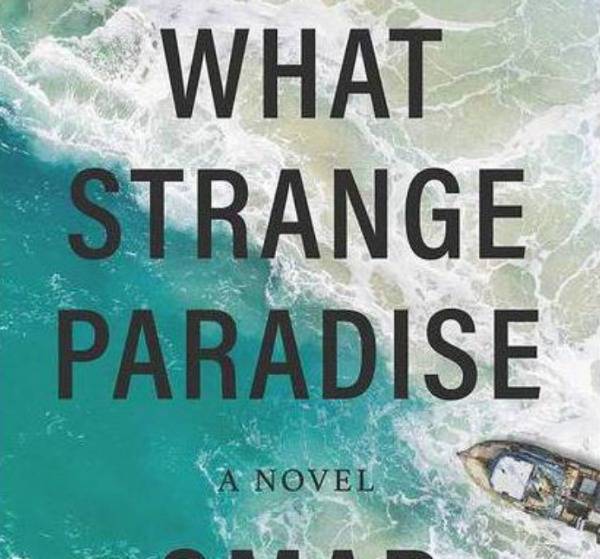Spinning arms, monocles, bowties, frogsuits and whackiness what is TV doing to science? A pernicious disease is slowly but remorselessly sweeping through British television: presentus digitatis, the inability to speak to a camera without simultaneously performing a stereoscopic manual commentary in midair. It is believed that David Bellamy first brought the virus into a TV studio during the mid1970s, and that it incubated there in the warm glow of the lights and the egos, gradually reaching the epidemic proportions we are witnessing today. Telltale symptoms of infection include 'synchronised linksausagefingers syndrome', the 'symmetrical double forefinger inverted commas', the 'Al Jolson', and the 'conducting the Rite of Spring', and doctors have now discovered a method of diagnosing cases in their early stages. Simply fastforward your video, and if the presenter looks like a windmill in the throes of a grand mal, they've got the disease.
Presentus digitatis recognises no boundaries as it cuts a swathe through television's front line troops. Political pundits, economics editors, literary critics, even historians, no one is immune, but nowhere has it wreaked such havoc as in the realm of science. Television has an inherent distrust of 'difficult' subjects, due to their alleged propensity for alienating viewers, and highflown science, with its intricate equations and mathematical theorems, has an unrivalled capacity to baffle the lay person. So the medium responds either by not commissioning such programmes at all or, when it does, by using a presenter who is the perfect antidote to such complexity: eccentric boffins with a visual gimmick so wacky and idiosyncratic that we'll keep on watching them, despite not understanding a word that they're saying.
Television has an insatiable appetite for eccentric scientists, and can corrupt almost anyone with a BSc who is unwise enough to put his (it's always a male) head inside the magic rectangle. More often than not, the medium concentrates on the sensationalist fringes of the subject, rather than on its solid but forbidding core, so most of the programmes deal with topics that reputable scientists should not be touching with a barge pole in the first place. And even when it does occasionally address a serious issue, it does so with its customary mixture of credulity and hubris, crassly trampling over decades of painstaking academic research in pursuit of a glib (and invariably unconvincing) solution that will allow it to claim in the most portentous tones that it has 'solved' a problem that has baffled science for decades.
But that doesn't stop famehungry boffins from queuing up outside the TV producer's door, eager for a chance to bask in front of the cathode rays, and willing to submit to any indignity in order to stay there. The downward spiral starts gently enough, with a guileless wink or an unfeigned nod to camera, but soon the scientist's unaffected tics and mannerisms are being massaged and amplified until they achieve the level of a selfconscious parody that can be deployed at will. The day Magnus Pike began spinning his arms on cue, or Patrick Moore appeared on the Sky at Night having agreed to don a monocle, you knew that they'd given in to the temptation to develop a mild quirk into a fullblown 'I'm a nutty professor' routine. And once that Rubicon of personal integrity has been crossed, it's downhill all the way thereafter.
There's something not just embarrassing, but demeaning too, about the sight of intelligent and accomplished scientists eagerly Uncle Tomming to some dipshit of a producer and their crew. I recently saw Lord Winston (whose pioneering work with in vitro fertilisation is second to none) dressed as a pantomime dame while fronting some banal BBC1 attempt to popularise his subject, and couldn't help wondering why anyone would compromise their dignity to such an extent, in exchange for a little fleeting notoriety. But he's by no means alone. Pike, Moore, Bellamy, and Heinz Woolf (Professor of Comedy Bow Ties and Viennese Eccentricity at Brunel University) have all trodden that ignominious path before him, like nice girls being plied with sherry and led astray by a debauched old roué. And while we all know what's in it for the roué, what on earth can be the attraction for these chaste media virgins? Could it be that, beneath their veneer of unworldly innocence, they're all secretly gagging for it?
Fundamentally, of course, the alliance between television and science is a Faustian pact. On the one side are the TV producers, university graduates who didn't stay on to do their PhD (as their tutor wanted them to), and instead headed straight for the money and glamour of the media, carrying with them a slight intellectual guilt about having abandoned the bookish life. On the other side are the science lecturers, middleaged men who've grown tired of languishing in the shady (and skint) groves of academe, and long for an audience larger than they can attract to a halfempty seminar room or a draughty lecture hall. And the result? The scientist has his 15 minutes of televisual fame beyond the boundaries of his campus, while the producer exults in the power he has to trivialise and demean the subject he once abandoned, under the pretence of trying to 'popularise' it.
Popular Science is a contradiction in terms, however, because (by definition) the bigger the audience that a programme can attract, the less it will have to do with science and the more it will be centred around eyecatching gimmickry. The longrunning, primetime Tomorrow's World, for example, was never really a science show at all, more an Innovations catalogue of the air. Admittedly, during its heyday in the 60s and 70s (when there were few other channels around, and ratings were not the sole raison d'être of TV executives), its reports were at least wellwritten, and authoritatively presented by Raymond Baxter, or voiced by Derek Cooper. But once the multichannel 90s had arrived, any attempt at serious explanation was abandoned altogether, in favour of an obsession with gadgetry, with Peter Snow cranking up his nutty professor routine to maximum, accompanied by some eye candy in the shape of exchildren's presenter and allround autocutie, Philippa Forrester. In its latter years, it abandoned all pretence of being a science programme, and became a mere succession of consumer reviews and human interest stories, often linked Benny Hillstyle speededup 'funny' routines that were certainly no laughing matter.
Meanwhile, the occasional uncompromisingly rigorous science programmes that have been commissioned (replete with chemical formulae and arcane calculations) have inevitably attracted microscopically small audiences, and the old highminded public service ethic that allowed them to be made at all has virtually disappeared. 'Infotainment' is now the buzz word, and ratings are paramount, so TV executives increasingly try to bridge the gulf between education and ratings by hiring an absentminded professor from central casting, in a desperate bid to attract the punters. But it's a hopeless quest because, as Stephen Hawking was once told by his publisher, "each equation you include in your book will halve your sales," and the same is true of viewing figures. Speaking of Hawking, incidentally, he's someone who's surely taken the idea of an eccentric gimmick just a little bit too far.
Are there any presenters who have managed to popularise science without compromising their integrity? In recent years, Adam HartDavis has come closer than most. He may be a toasted whippet in a tortoiseshellshaped crash helmet, and 35 years too old to be wearing lycra cycling pants, but there's something fundamentally likeable and real about him. For a decade, in shows like Local Heroes and Science Shack, he brought lucidity and elan to the screen, and wasn't afraid to explain why things worked, as well as showing us how. But even he's given up in despair at the indignities he has been expected to endure of late, and his prime time BBC role has now been usurped by Garry Lavin (presenter of Every Home Should Have One), who has burst onto our screens this year in such an advanced state of general wackiness that things can surely only end in tears.
It's time for TV executives to accept that science (like chess and chamber music) is essentially an austere discipline that will never attract a mass audience, but deserves to be given serious coverage, to satisfy that part of the population who understand and appreciate the inherent complexities. In the meantime, can we cut the forced and degrading eccentricity? It's nothing more than the infotainment equivalent of a movie director trying to persuade a naive actress that, if she took her top off, it would be beneficial for the film as a whole. Such things never happened in Jacob Bronowski's day, when science was treated with respect. Dr Bronowski never took his top off. Which was a pity, because I'm told he had magnificent breasts.n

